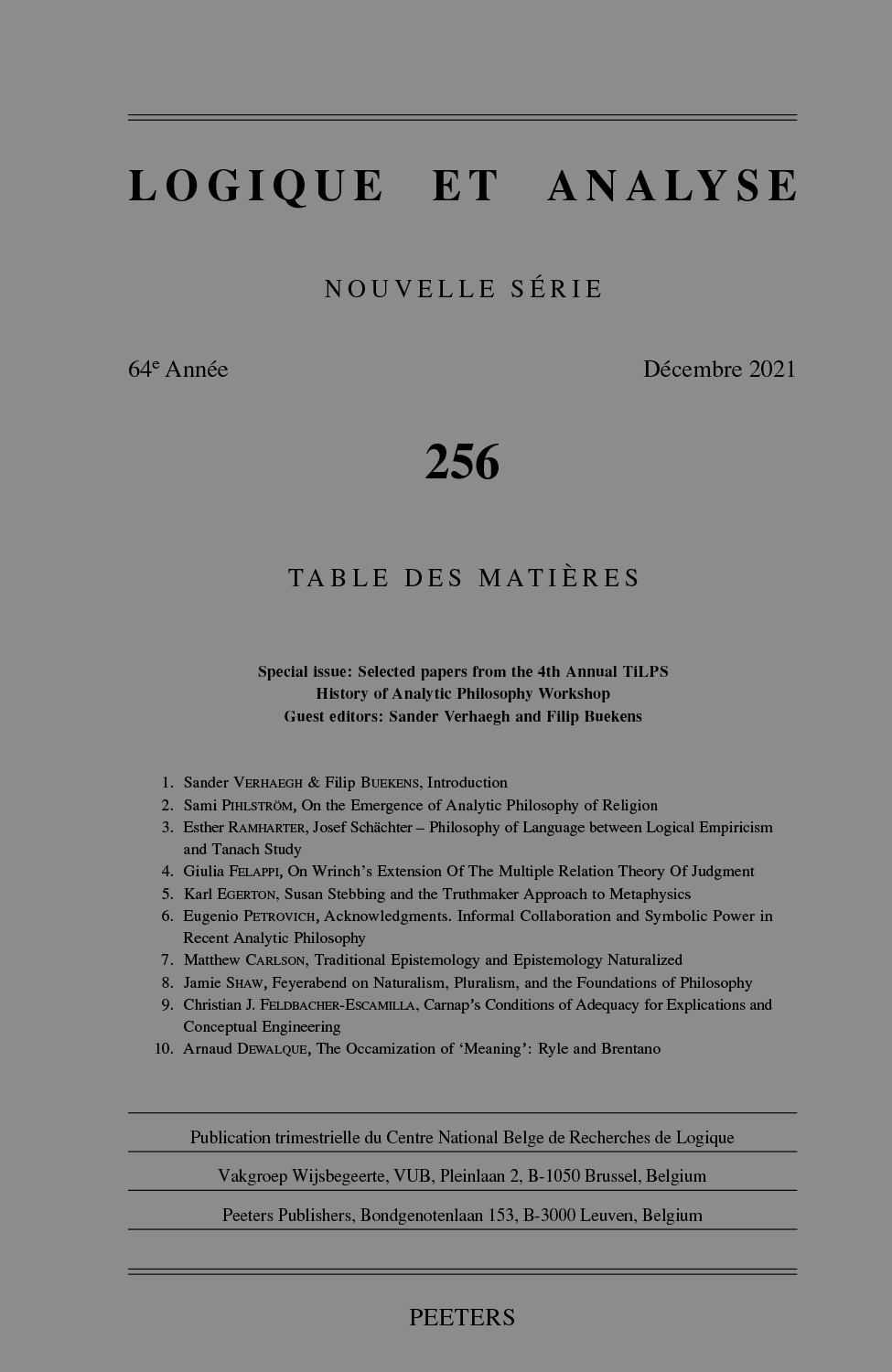 previous article in this issue previous article in this issue | next article in this issue  |

Preview first page |
Document Details : Title: Meaning Theory for Absolutely General Languages Author(s): GUINDON, Eric Journal: Logique et Analyse Volume: 248 Date: 2019 Pages: 379-414 DOI: 10.2143/LEA.248.0.3287322 Abstract : An 'absolutely general' or 'unrestricted' language is one the quantifiers and variables of which are meant to range over absolutely everything whatsoever. In recent years, an increasing number of authors have begun to appreciate the limitations of typical model-theoretic resources for metatheoretic reflection on such languages. In response, some have suggested that proper metatheoretic reflection for unrestricted languages needs to be carried out in a metalanguage of greater logical resources. For an unrestricted first-order language, for example, this means a second-order metalanguage. Importantly, for proponents of this approach, second-order quantification is not to be understood as restricted quantification over a special class of things, such as sets or properties, but as an irreducible logical expansion. In this paper, I will argue that the use of second-order resources is also required if we are to give a meaning theory for an unrestricted first-order language. I then show how such a meaning theory can be constructed for a first-order language. |
|


